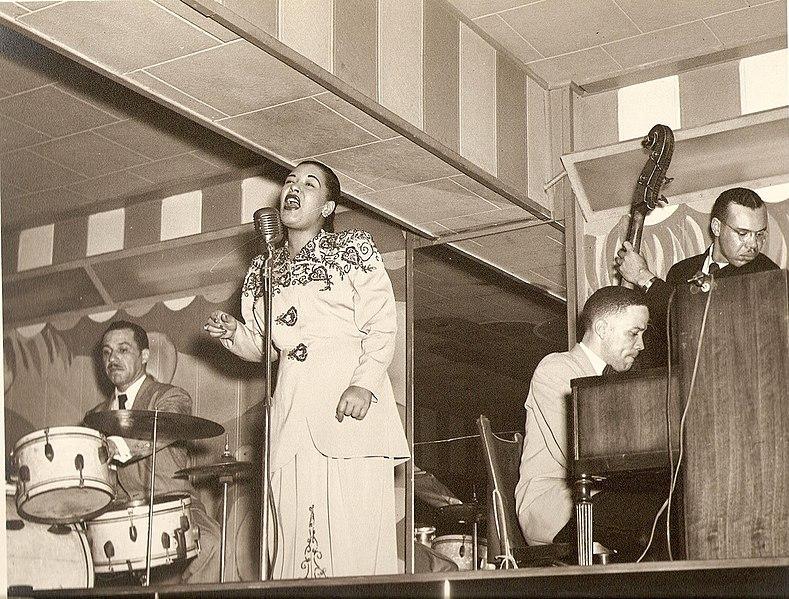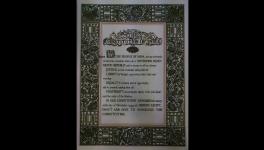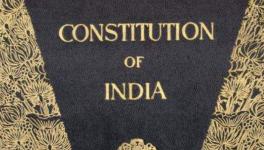On Juneteenth, Indians Must Learn About this Iconic Anti-Racism Song

Billie at the Club Bali, Washington
As a student, I enjoyed singing revolutionary songs and shouting slogans in meetings and demonstrations. But I do not remember being moved by any song as I have been by “Strange Fruit”. The lyrics of this song have haunted me ever since I heard it a few months back. Each word is written with deep pain and sung with anguish rooted in suffering and anger.
I came across the song while idly surfing the net. Immediately, it struck a deep chord in my heart. It would be appropriate to remember the song’s history on 19 June or Juneteenth, the national Independence Day commemorating the end of slavery in the United States of America. It was only last year that America recognised the day as a federal holiday.
Written in the context of the lynching of African Americans, “Strange Fruit” has an iconic status for it is considered the first protest song of the civil liberties movement in the United States. The song was made famous by Billie Holiday, who sang it in 1939. Getting the song on record was difficult because Columbia Records would not touch it.
The song depicts lynching in all its brutality:
Southern trees bear a strange fruit,
Blood on the leaves and blood at the root,
Black body swinging in the Southern breeze,
Strange fruit hanging from the poplar trees.
Pastoral scene of the gallant South,
The bulging eyes and the twisted mouth,
Scent of magnolia sweet and fresh,
And the sudden smell of burning flesh!
Here is a fruit for the crows to pluck,
For the rain to gather, for the wind to suck,
For the sun to rot, for a tree to drop,
Here is a strange and bitter crop.
The history of this song has been written in books and depicted through films. It is central to the movie drama The United States vs Billie Holiday (now streaming online), which traces the efforts of the Federal Bureau of Investigation to silence Holiday because of the song.
For more than a decade, the Federal Bureau of Narcotics targeted Holiday with drug arrests and effectively barred her from the nightclub circuit after an eighteen-month prison term. She died of liver disease in 1959, aged 44.
A book on the history of the song, Strange Fruit: Billie Holiday, Café Society and an Early Cry for Civil Rights, by David Margolick, was published in 2000. It describes how the song articulated the growing awareness and anger that was to rise during the mass civil rights movement of the 1950s and sixties. A 57-minute documentary directed by Joel Katz named after the song also tells its story.
The song was written not by an African American but by a Jewish school teacher who was a member of the American Communist Party. He wrote it under the name Lewis Allan. His real name was Abel Meeropol, and he was born in 1903 and died in 1986. Meeropol’s family were Russian Jewish immigrants living in the Bronx in New York City. He taught English in a school where one of his pupils was James Baldwin, the famous writer.
Meeropol wrote “Strange Fruit” in response to the lynchings of Black Americans. It is conservatively estimated that there were at least 4,440 lynchings in the half-century before 1940, the vast majority in the South. Little outrage was expressed over these pogrom-like activities. The socialists and communists were at the forefront of the struggle against lynchings.
Anti-communist politicians generally agreed with the Southern racists that the fight for racial equality was basically a left-wing plot. In 1941, Meeropol was brought before the witch-hunting Rapp-Coudert committee, which the New York State legislature had set up to investigate alleged Communist influence in the public school system. He was asked if the Communist Party had commissioned “Strange Fruit” or whether he had been paid by the party to write the song.
Meeropol was at a party at the home of the famous author WEB Du Bois, where he met Michael and Robert, the sons of Julius and Ethel Rosenberg, who were executed in 1953 on charges (later proved false) of spying for the Soviet Union. Meeropol and his wife, the singer Laura Duncan, adopted the boys, and they go by their adoptive father’s name.
The history of “Strange Fruit” is an inspiring story of solidarity and support based on political ideology, which brought together diverse struggles, in contrast to identity politics, which is rapidly extinguishing the histories of such struggles. The song and its history may well have lessons for us in India.
When Kishore Kumar songs were banned
When an emergency was imposed in 1975, singer Kishore Kumar was blacklisted from All India Radio (AIR) and Doordarshan, for he had refused to perform at a political rally in Mumbai. The minister of Information and Broadcasting (I&B), Vidya Charan Shukla, wanted Bollywood to help promote on AIR and Doordarshan the Twenty Point Program Indira Gandhi had declared after imposing the Emergency. Sanjay Gandhi asked Kishore to sing for the event, but he refused.
A Times of India report says that CB Jain, then the joint secretary in the ministry of I&B, called Kishore Kumar to inform him about what the government wanted. He insisted they should meet at Kishore’s residence. However, the singer refused. According to the report, Jain was offended and informed the I&B secretary SMH Burney of Kishore’s refusal to meet. After this, with Shukla’s sanction, Burney banned all Kishore songs on AIR and Doordarshan. The ban lasted from 4 May 1976 until the end of the Emergency. Shukla was close to Indira Gandhi’s son Sanjay.
The author is a human rights lawyer, teacher, campaigner, and writer. The views are personal
Get the latest reports & analysis with people's perspective on Protests, movements & deep analytical videos, discussions of the current affairs in your Telegram app. Subscribe to NewsClick's Telegram channel & get Real-Time updates on stories, as they get published on our website.
























